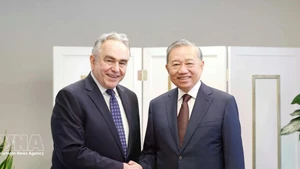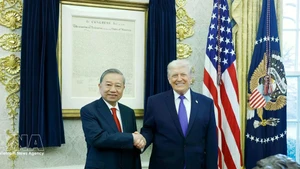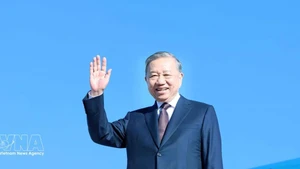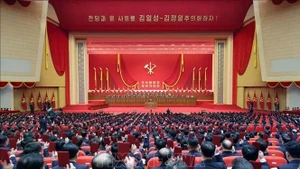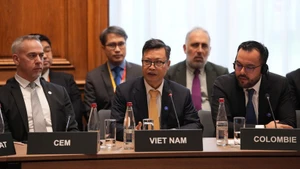Germany is one of the leading industrialized countries in the world, having the 4th largest GDP in the world. The country is an active member and plays an important role in regional and international organisations such as the United Nations, the European Union (EU, NATO, G7 and G20.
Germany is the world's second-largest donor to official development assistance (ODA). Germany's ODA recipients include about 70 countries. Each year, Germany spends an average of more than 0.5% of its GDP on development aid. Germany is one of the world's leading countries in the Fourth Industrial Revolution, with many efforts to improve production through extensive application of information technology, biotechnology, and artificial intelligence.
Vietnam and Germany established diplomatic ties in September 1975. Since then, the friendship and cooperation between the two countries has developed actively, effectively and comprehensively, in an increasingly deepened manner. Mutual trust and understanding between the two countries have been further strengthened through maintaining the exchange of high-level delegations and cooperation mechanisms.
During the visit to Vietnam by German Chancellor Angela Merkel in October 2011, the two countries established a strategic partnership. The Communist Party of Vietnam (CPV) has established a high-level theoretical dialogue mechanism with the Social Democratic Party (SDP) and the Left Party (LP) of Germany.
In March 2022, General Secretary Nguyen Phu Trong spoke on the phone with German Chancellor Olaf Scholz to promote cooperation between the two countries and between the CPV and the SDP.
Economic cooperation between Vietnam and Germany is developing well. Germany is now Vietnam's largest trading partner in Europe, accounting for nearly 20% of Vietnam’s exports to the European Union (EU). It is also an important transhipment gateway for Vietnamese goods to enter other markets in Europe. Vietnam has become Germany's leading trading partner in Southeast Asia and its sixth largest in Asia.
Germany played an active role in the negotiation and ratification of the EU-Vietnam Free Trade Agreement (EVFTA) and the EU-Vietnam Investment Protection Agreement (EVIPA).
Two-way trade turnover in 2021 reached more than 11 billion USD; in the first 7 months of 2022, it reached nearly 7.3 billion USD. Regarding investment, as of January 2022, Germany has 417 valid projects worth over 2.29 billion USD in Vietnam, ranking 4th in the EU investing in Vietnam.
Regarding development cooperation, Germany is one of the countries that regularly and frequently provide official development assistance (ODA) to Vietnam. Since 1990, Germany has provided over 2 billion USD for ODA projects in Vietnam in socio-economic development and international integration.
Since 2020, Vietnam has been considered a "Global Partner" within the new strategy 2030 for the development cooperation of the German government, prioritising cooperation in the fields of climate change adaptation, energy transition, green and renewable energy development, vocational training and education, and health. The German government continued to commit over 143.5 million EUR (over 147.8 million USD) in ODA for Vietnam for 2022–2023. During the complicated development of the COVID-19 epidemic, Germany aided Vietnam with more than 10 million doses of COVID-19 vaccine and many medical equipment.
Bilateral cooperation in the fields of culture, education-training, judicial cooperation, health, tourism and science-technology and local cooperation has many imprints. The two countries work closely at the United Nations and other multilateral mechanisms such as ASEM and ASEAN-EU. Germany supports the view of settling disputes by peaceful means, on the basis of international law and the 1982 United Nations Convention on the Law of the Sea (UNCLOS).
The Vietnamese community in Germany currently has nearly 200,000 people who are enjoying relatively stable lives. The second generation of Vietnamese in Germany integrated quite successfully and was highly appreciated by the local authorities. Currently, several German states have permitted the introduction of Vietnamese as an elective foreign language in high schools.
This official visit to Vietnam by German Chancellor Olaf Scholz aims to deepen the bilateral economic, trade and investment cooperation, creating favourable conditions for businesses of the two countries to access and learn about each other's market, potential, needs and strengths. May German Chancellor Olaf Scholz's visit to Vietnam be a great success, contributing to fostering peace and stability in the region and in the world.
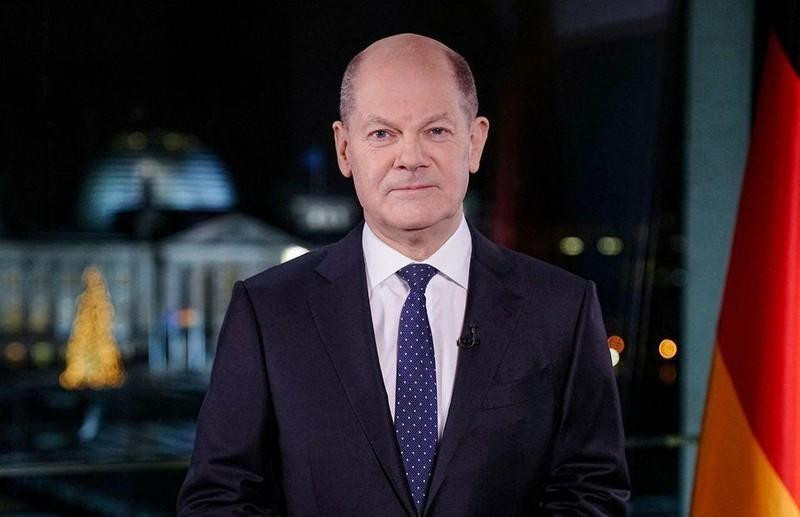

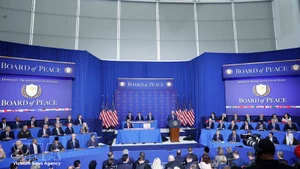
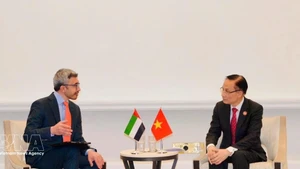
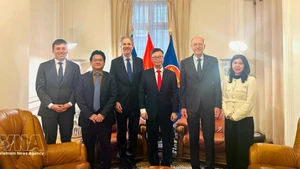
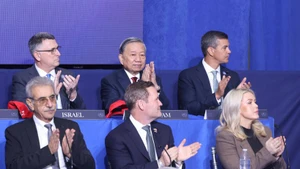
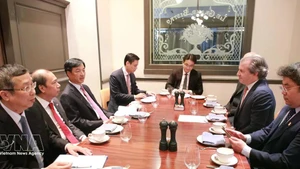
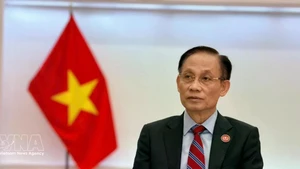
![[In pictures] Party General Secretary To Lam meets US President Donald Trump](https://en-cdn.nhandan.vn/images/dcd63867a0eed4c7753eb4bfb346593abc1ce710dfab8ad1b9aebd75ea6bf930b2ea13e4664779d689ba40aadd80f76d5d05d1208720fd7b0d811ace3a3297321c78cf738400e136e3f2d8790b24d43646e46edbe19517144a88f6ffb0d528f153574a7109328cc0949e4a4c16433c2ff751541639eefe4490518227264cbf8e/vna-potal-tong-bi-thu-to-lam-gap-tong-thong-hoa-ky-donald-trump-8599945.jpg.webp)
